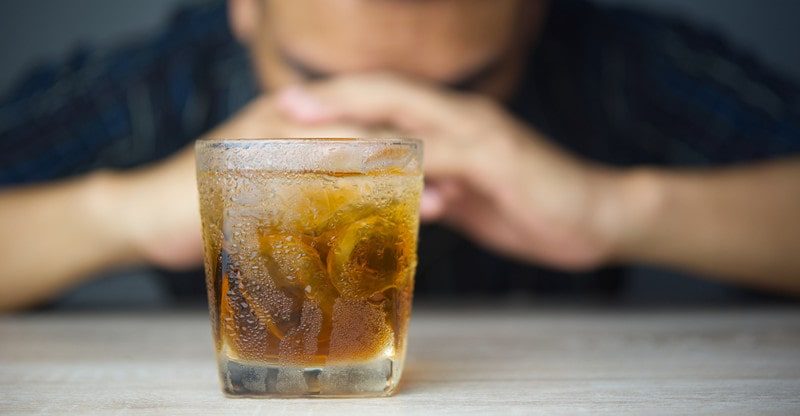Addiction Withdrawal 101: Symptoms, Causes, Timeline, And How To Cope
If you’ve been addicted or dependent on a particular substance and cut down your usage abruptly, you may experience addiction withdrawal. In some cases, it can be unpleasant and dangerous, especially if you try to deal with your addiction without professional help.
Addicts may also experience various withdrawal symptoms. The duration and intensity of such symptoms vary widely, depending on your health condition and the type of substance you use.
Fortunately, there are ways to manage addiction withdrawal symptoms. For example, you can ask help from professionals working in treatment centers similar to westcoastrecoverycenters.com. For more information about addiction withdrawal, consult your doctor and read below.
What Is Addiction Withdrawal?
Addiction withdrawal is the process of reducing or cutting out addictive substances. These may include alcohol, drugs, and opioids. Other behaviors like gambling can also be addictive.
Once your body gets used to working without the behavior or substance, you may experience several symptoms, which can be mild or severe, depending on your condition. Being aware of such symptoms can make quitting and dealing with addiction less complicated. It’s also much easier for your loved ones to support you.
Symptoms Of Addiction Withdrawal
During withdrawal, biological changes may occur in your brain as it seeks balance, also known as homeostasis. These changes cause a combination of emotional and physical symptoms.
Depending on your addiction’s intensity and length, you may experience the following:
• Anxiety
Anxiety is expected during withdrawal. It can be unpleasant and worse than feeling nervous. If you drank alcohol or took drugs, you’ll likely feel tenser. In addition, if you’re self-medicating, you might be afraid of what will happen if you don’t know how to deal with it.
The physical symptoms of anxiety may include increased heart rate and irregular breathing. Sometimes, you may feel like you’re having a heart attack or can’t catch a breath.
• Depression
Depression is a common symptom of withdrawal. Once it happens, you may suffer from an inability to experience pleasure or lack motivation. Often, it happens among individuals in recovery whose brains are hijacked to produce excessive feel-good chemicals like dopamine. In the absence of excessive dopamine, people with addiction may not feel happy.
• Fatigue
Fatigue is another typical symptom of people withdrawing from alcohol and drugs. You might feel tired from countless emotions and thoughts overwhelming your brain when you don’t take drugs or consume alcohol to numb them.
• Mood Swings
Rapid mood fluctuations are common during addiction withdrawal. You may feel exhausted, and sometimes, you may have the urge to escape because you think something awful might happen. When it happens, such mood swings can be draining for everyone.
Physical symptoms of addiction withdrawal may last for a week or several days. However, psychological symptoms, including depression, may last longer.
In other cases, severe symptoms, such as delirium, hallucinations, and seizures, may occur. The kind of substance you’re taking, the period you’re taking it, and the dosage may affect the severity and type of symptoms you’ll experience.
What Causes Addiction Withdrawal?
The body strives to restore any imbalance that may arise until it reaches homeostasis. Using drugs, drinking alcohol, or smoking excessively may alter your brain activities, disrupting your body’s state of balance. Over time, once you use substances regularly, your brain may make adjustments to combat the chemical changes made by such substances.
Unfortunately, once you stop using or cut back on substances, your brain may struggle to reach homeostasis. The adjustment involves rebalancing several chemical messengers called neurotransmitters, which may result in withdrawal symptoms for various substances.
In short, your brain adjustments due to continued alcohol or drug use may result in physiological dependence. People with this dependence are more likely to experience side effects of addiction withdrawal once attempts are made to stop or slow down substance use.
Timeline For Addiction Withdrawal
Addiction withdrawal lasts depending on the substance used. Some factors may also influence the timeline of addiction withdrawal, and these may include:
• Period of taking substances
• Dosage
• Types of substances
• Your weight, genetic profile, and metabolism
• Methods of consuming substances
Generally, the withdrawal timeline is broken into several stages, such as protracted, acute, and post-acute.
• A protracted withdrawal stage is when people experience symptoms at their worst and start to fade.
• A post-acute withdrawal stage is when the symptoms are intense and may last from a few days to weeks.
• A prolonged withdrawal stage is when symptoms subside. It may include long-term symptoms, such as depression and cravings.
Understanding every stage will help you determine which treatment is suitable for you. This may also help your loved ones know how they can provide support and other necessary resources you may need to recover.
How To Cope With Addiction Withdrawal
One of the most complex parts of recovery is dealing with addiction withdrawal symptoms. Depending on the severity of such symptoms, some may return to their vices and give up on recovering. With that in mind, coping mechanisms are essential to prevent that from happening.
When your body becomes accustomed to chemical imbalances caused by substances, you need various ways to redirect your attention and opt for healthier choices. If you don’t know where to start, read below to learn how to cope with addiction withdrawal successfully:
1. Exercise Regularly
Regular exercise may help your brain restore chemical balance and release endorphins. It may also lessen stress and tension, allowing you to sleep better and improve your self-esteem.
Studies show that exercising may help reduce compulsive cravings and prevent the possibility of relapse. Therefore, it can be of great help to your recovery.
Your exercise doesn’t need to be extreme. You can go for a run or short walk regularly. You may join aerobic activities to improve your physical, stability, and mental health during addiction withdrawal.
2. Seek Professional Help
One of the best things you can do to cope with addiction withdrawal is to seek professional help. Finding a reliable recovery center may help ensure you get the support you need to recover effectively. An excellent benefit of seeking a professional’s assistance is that medical practitioners can provide proper counseling, therapies, and medications to help boost your chances of success.
When looking for professionals, make sure to choose the one known for its reputation and quality services. While working with professionals offering cheap services is tempting, you might not get the proper treatment for your unique needs.
So, before you work with any healthcare professional, shop around and compare your options. You might also consider asking for references to make the right choice. You may even ask your friends or family to help you select an addiction withdrawal specialist.
3. Participate In A Group Therapy
To achieve recovery, some people have to work through various therapies. One of the common therapies you can consider is group therapy. Basically, it’s a session in which trained specialists meet with a group to do a therapy session. Such groups may range in size in every gathering.
Every group therapy session will differ depending on the treatment program’s goal. Other therapists may have a particular plan to engage with every participant. Some may also offer a free-form dialogue wherein every member can participate comfortably.
In a group therapy program, confidentiality is a vital component. Each group member is highly encouraged to share their feelings and thoughts, which will help them to feel supported and secure.
Participating in group therapy sessions can offer you various benefits, such as:
• Long-Term Support Network: Most people typically rely on others they’ve met in a group therapy session after rehab. Group members may also go into this kind of therapy for years, allowing them to form lifelong friendships.
• Feeling Of Inclusion: An essential benefit of group therapy is that it allows people to realize they’re not alone. They discover that some people have been through similar situations, which may help them learn other coping skills and have a shoulder to lean on.
• Supportive Environment: With group therapy sessions, people can discuss their problems and get tips back from various people. In addition, trained and licensed staff members are always around to provide constructive ideas and advice.
• Added Accountability And Structure: Most people with addiction benefit from the added accountability and structure provided by scheduled group therapy sessions. Reporting back to group sessions and attending other meetings offers additional accountability that may help you recover successfully and establish healthy lifestyle changes.
A group therapy session may also help people who have felt alone for several years to feel more comfortable and accepted in society. Look for a reputable recovery or treatment center to find the best group therapy sessions. You can also ask your healthcare provider for suggestions or recommendations to save time and choose wisely.
4. Get Support From Your Friends And Family
It’s never easy to go through addiction withdrawal. It can be more challenging when you decide to do it alone. During the process, you may feel weak and tired. This is why it’s crucial to get support from your loved ones.
Having the proper support will allow you to get through tough times. Being around people who understand you can also make a difference in your recovery.
5. Eat Nutritious And Well-Balanced Meals
Diet plays a vital role in healing your body and mind. Eating meals rich in essential vitamins, proteins, and nutrients is critical to restoring the body and healthy brain functioning. Alcohol and drugs may deplete your body’s nutrients, making it crucial to replace them to expedite healing.
Staying away from processed foods, refined sugars, saturated fats, oils, and caffeine may also help. It can be beneficial to take supplements to replenish your nutrients during addiction. Not only can proper eating help heal your body and brain and counteract malnutrition, but it may also improve self-care and self-image and lessen your cravings.
6. Get Enough Sleep
Addiction withdrawal symptoms may negatively affect your body. Sleep problems are also common in people with addiction and may occur during recovery and withdrawal. You need plenty of sleep to help your body recharge and get through the process.
Take time to clear your schedule and spend your free time resting while going through the withdrawal stage. Doing so will help you prevent extreme fatigue. In addition, it may also give your body more healing time.
If you struggle to sleep during withdrawal, improve your bedroom setup. For example, you can change your lighting and opt for cozy bedroom accessories. You can also improve your sleep habits with these tips:
• Avoid using mobile devices before bedtime
• Wind down with various quiet activities before bed
• Try to wake up and go to bed at the same daily
Having excellent sleep hygiene will help you get a good night’s sleep. If you still have sleep problems, consult your doctor for proper treatment.
7. Distract Yourself
Another effective way to deal with addiction withdrawal is keeping yourself distracted. If you focus on discomfort, the symptoms may intensify.
By searching for other ways to keep you distracted and busy, you won’t worry about addiction withdrawal symptoms, making it easier for you to deal with them. Therefore, instead of feeling sorry for yourself and lying in your bed, do something you can enjoy throughout the day.
8. Stay Hydrated
One of the common side effects of addiction withdrawal is dehydration. While addicted to substances, you may not have been drinking water regularly, making your body prone to chronic dehydration. The withdrawal process typically involves vomiting and sweating, which may cause severe dehydration.
Staying hydrated may ease your addiction withdrawal symptoms or reduce their severity. Be sure to drink more water or beverages with electrolytes to prevent dehydration.
These are some of the different ways you can cope with addiction withdrawal. If you don’t know which option is best for you, reach out to your healthcare provider.
Conclusion
Addiction withdrawal isn’t easy, and it can be a complicated process. Getting professional help may help keep you safe and comfortable. Aside from that, you can do other things to improve your chances of success or lessen the severity of withdrawal symptoms. Remember the above guidelines to make addiction withdrawal easier and help you start a new life.




